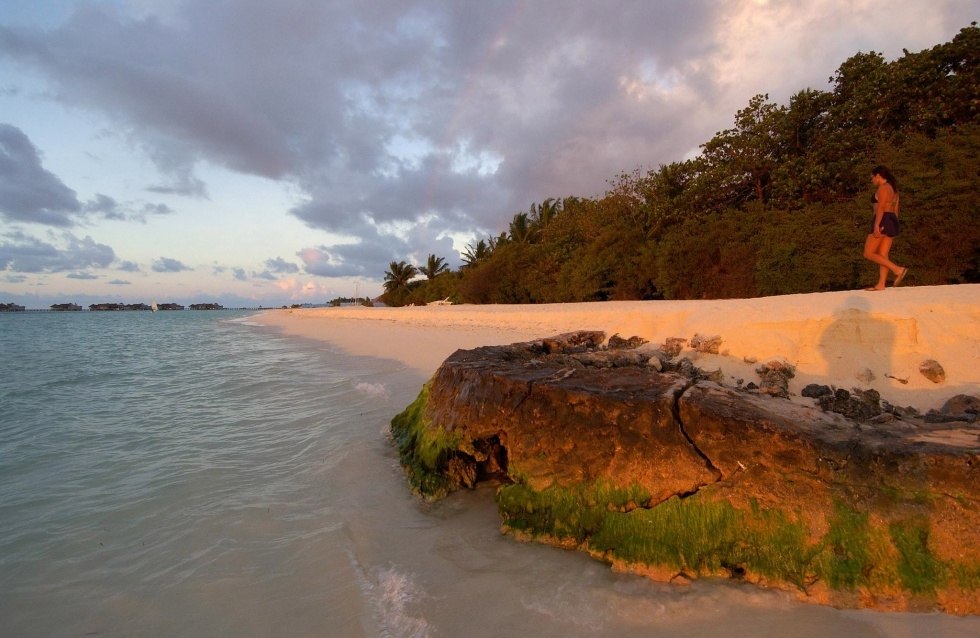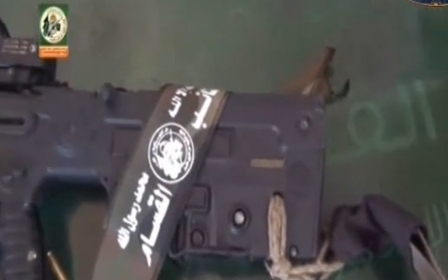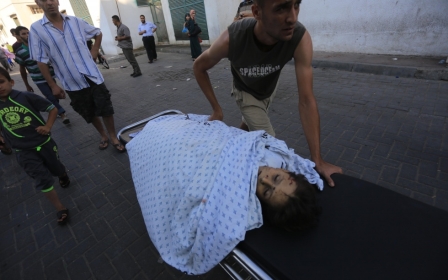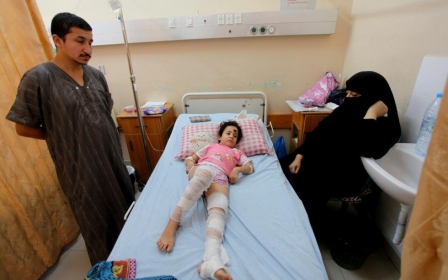Israeli tourists leave Maldives resort after Gaza demo

Israeli holiday makers were evacuated from their Maldivian resort after one of them tore up a placard equating the Nazi Swastika to the Israeli flag, officials said Wednesday.
Some 30 Israeli surfers were moved out to safety from Thulusdhoo island, near the capital island Male, as residents of the overwhelmingly archipelago protested the pulling down of anti-Israeli placards.
Tensions rose after an Israeli man tore down the placard daubed with a Swastika which had been pinned to a coconut tree.
Minister at the President's Office, Mohamed Shareef, said they evacuated the tourists for their own safety.
"There could have been an ugly incident and that is why the tourists were evacuated from the resort," Shareef told AFP by phone.
He said Israelis were not banned from entering the archipelago, better known for its upmarket tourism, but the Maldives was bitter with Israel over the violence.
"We have not banned them, but Israeli tourist must remember that they are visiting a 100 percent Muslim country," Shareef said. "We unequivocally and unconditionally support the Palestinian cause."
He said the Maldives had also put in place measures to express their opposition to Israel.
The Maldives this week began implementing a ban on Israeli-made goods and also abrogated three cooperation agreements on health, tourism and education.
"Imports from Israel are small, but we are banning imports as a token measure," Shareef said adding that the three bilateral agreements entered into by a previous administration in 2009 had largely remained on paper.
The Maldives, which is known for pristine beaches and secluded coral islands popular with honeymooners, attracted over a million tourists last year of which less than one percent came from Israel.
Maldivians have also begun collecting money to help Palestinians in Gaza where more than three weeks of Israeli attacks have killed nearly 1,300 people.
On the Israeli side, the conflict has also cost the lives of 53 soldiers as well as two civilians and a Thai agricultural worker.
Middle East Eye propose une couverture et une analyse indépendantes et incomparables du Moyen-Orient, de l’Afrique du Nord et d’autres régions du monde. Pour en savoir plus sur la reprise de ce contenu et les frais qui s’appliquent, veuillez remplir ce formulaire [en anglais]. Pour en savoir plus sur MEE, cliquez ici [en anglais].




